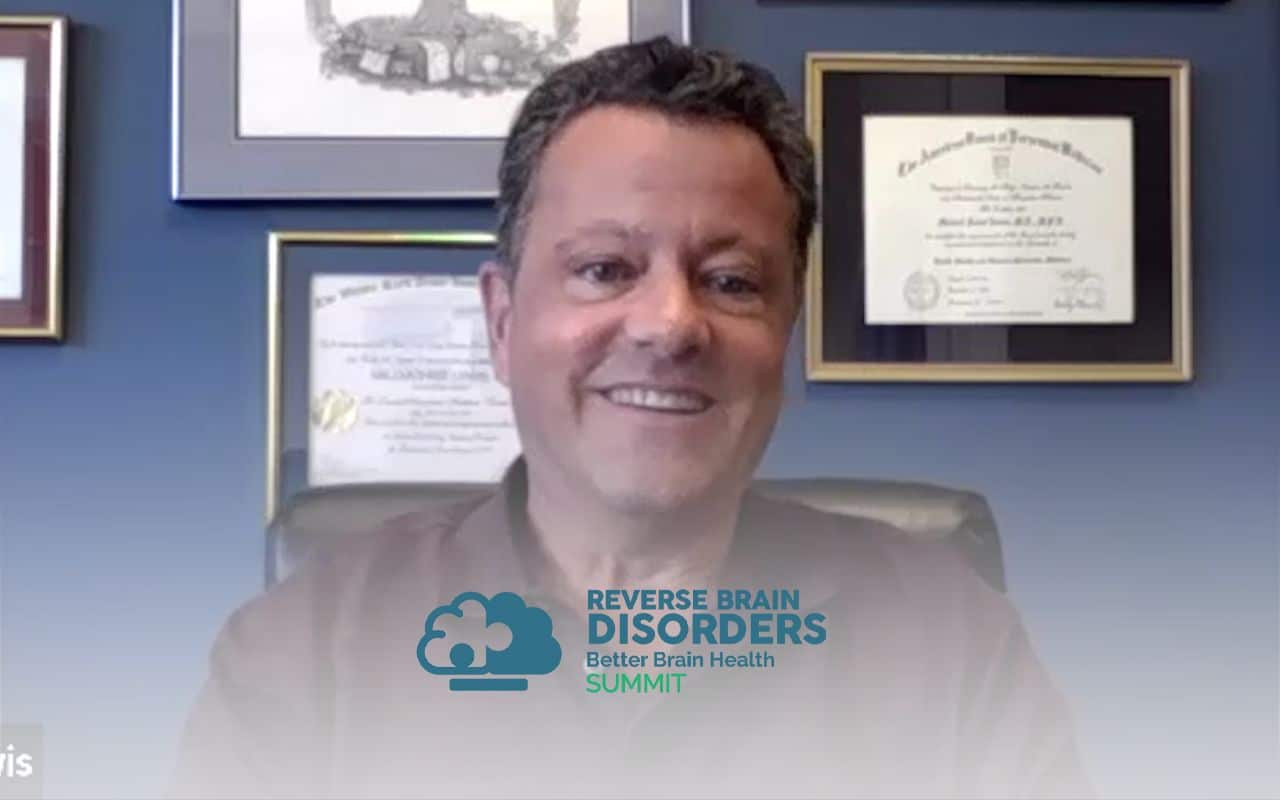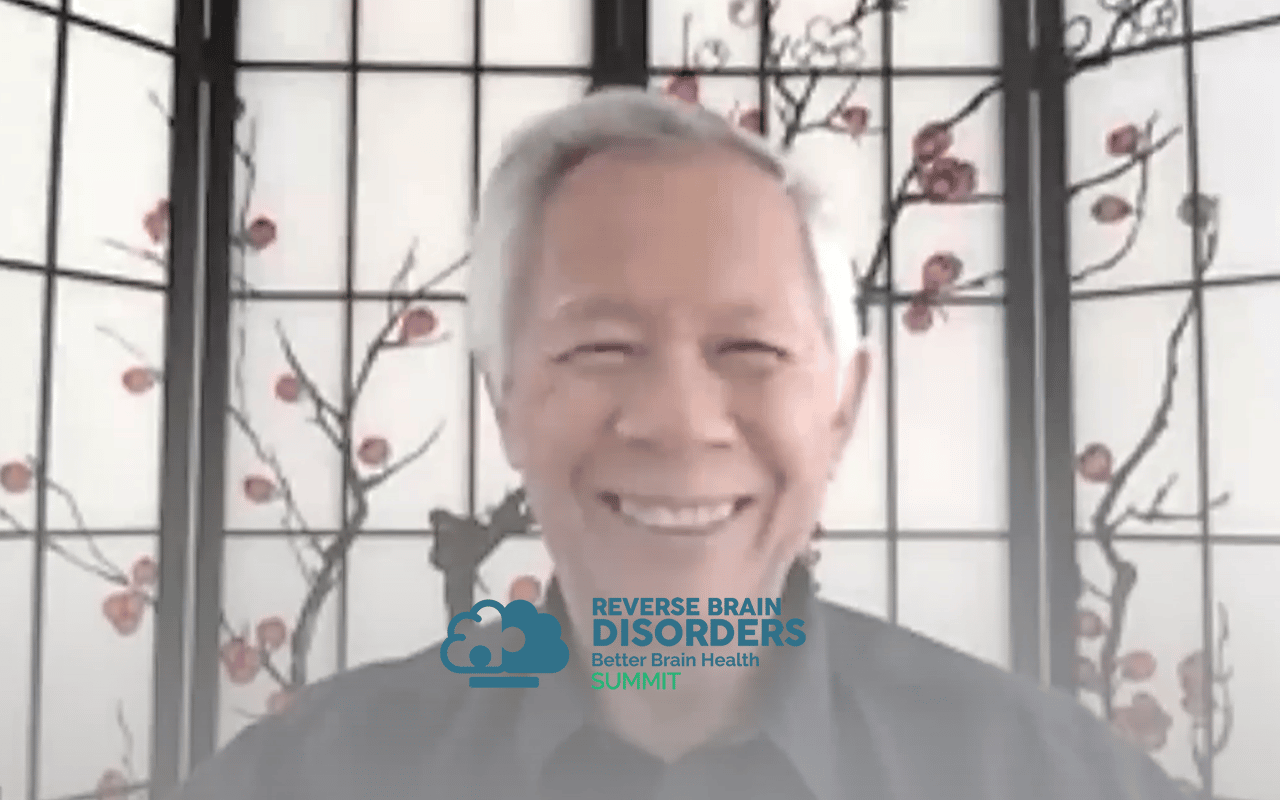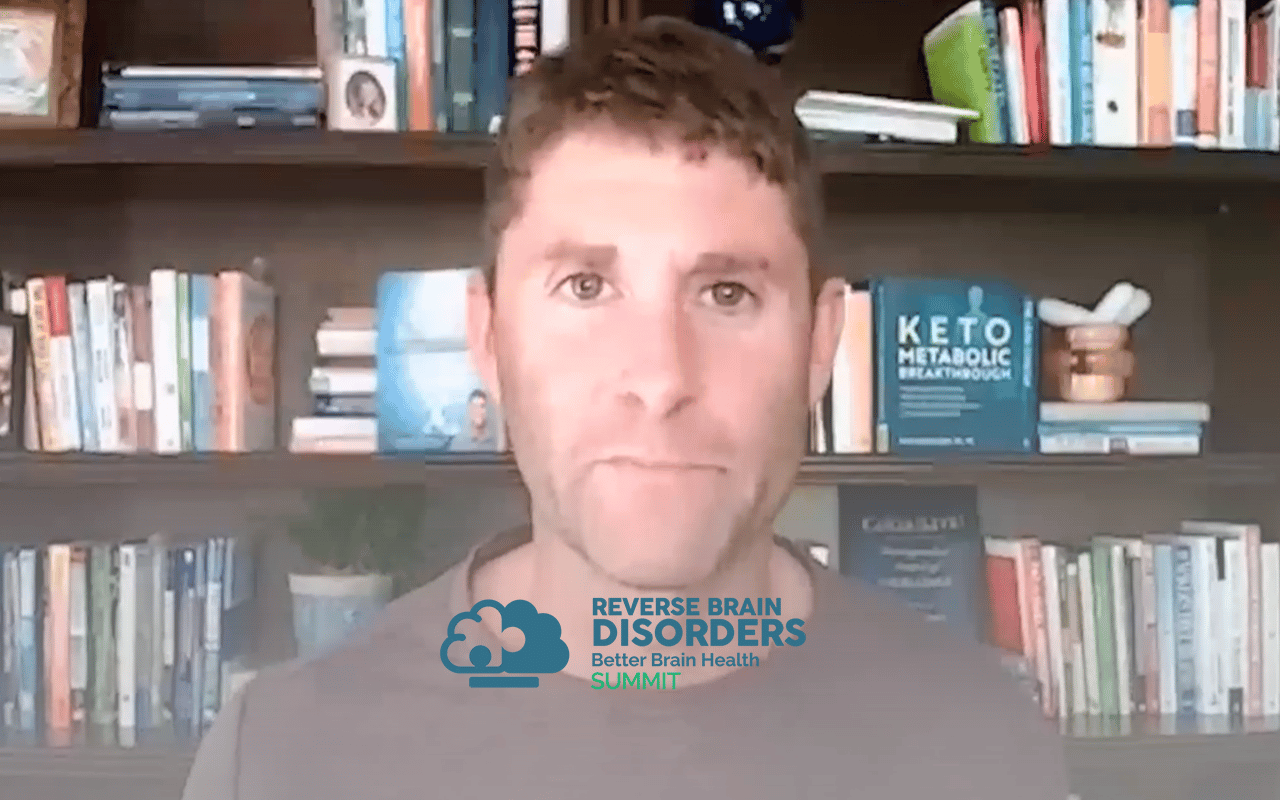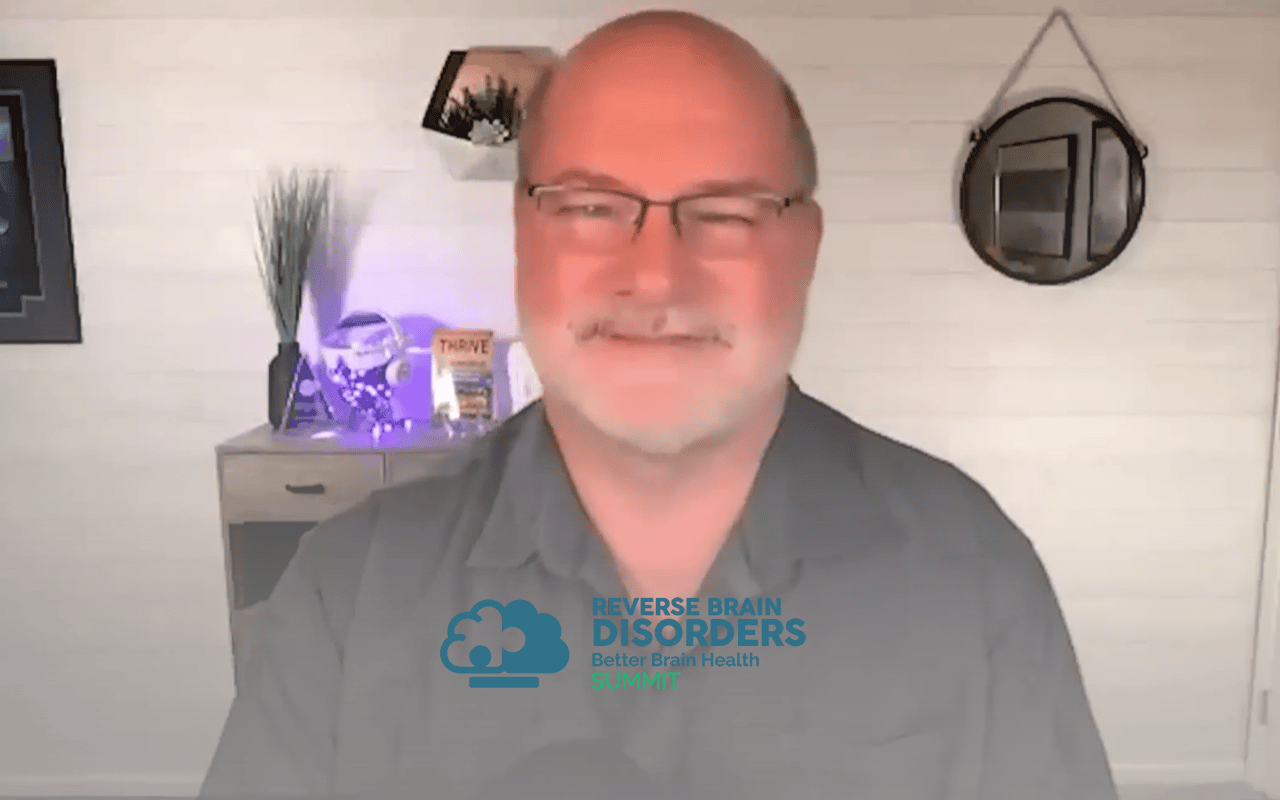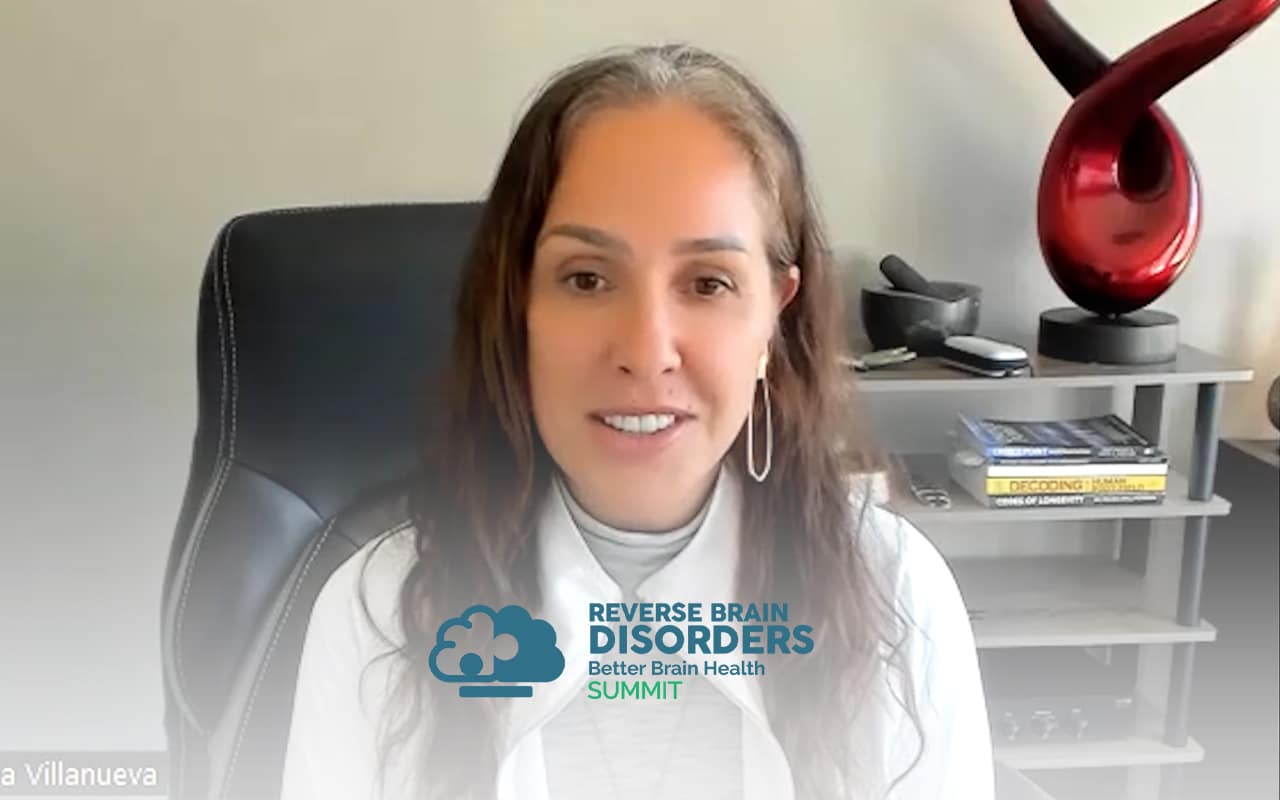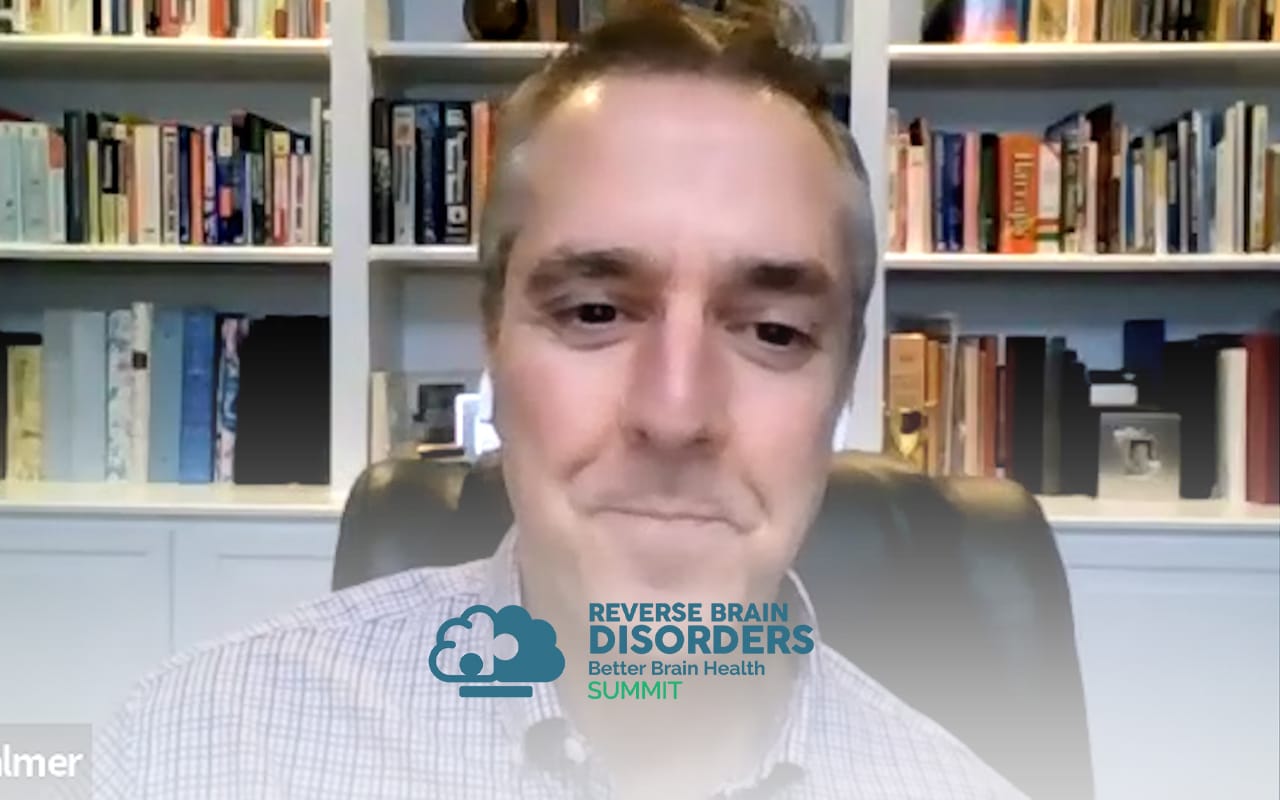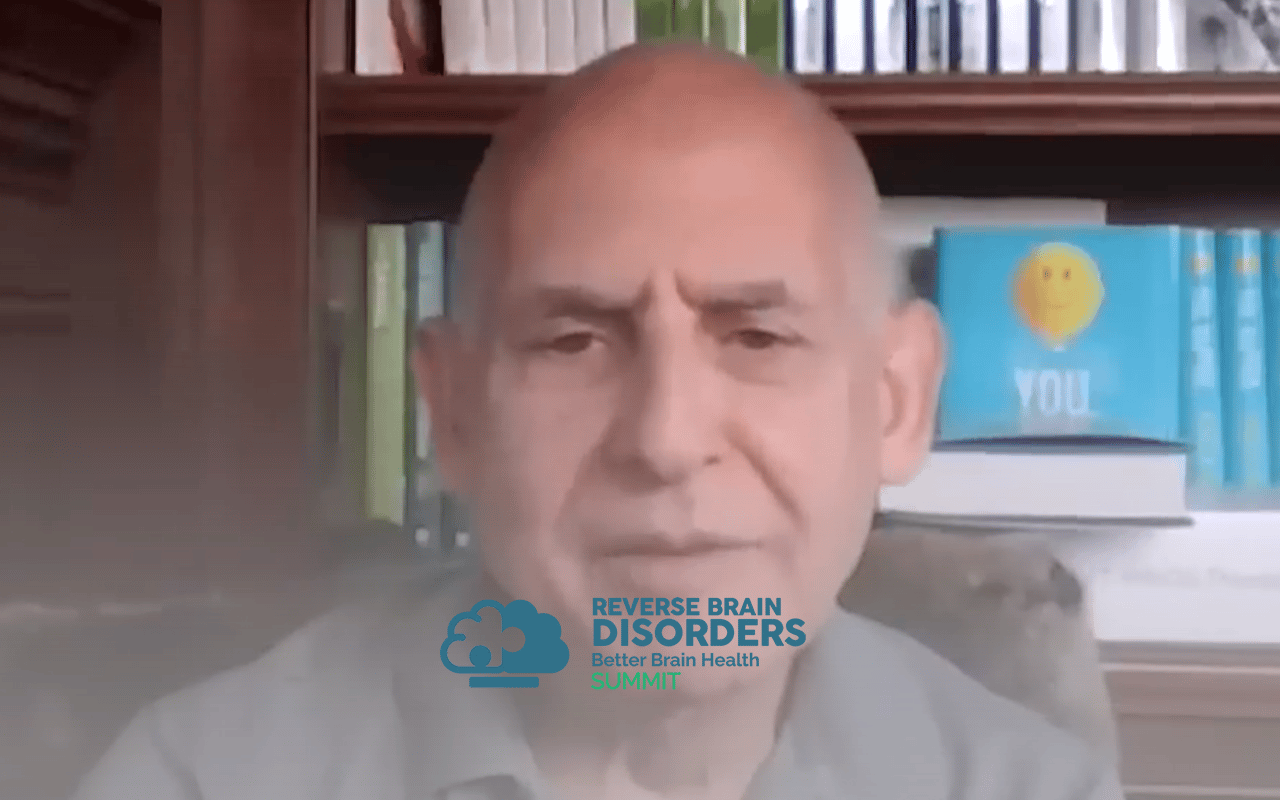Join the discussion below

Dr. Ruan is the Founder and CEO of Texas Center for Lifestyle Medicine. He devotes his career in practicing and building systems that allow for efficient delivery of healthcare. He is a board certified internal medicine physician but also have advised with companies to improve their workflow, company culture, marketing,... Read More

Michael Lewis, MD, is a proven leader and expert in brain health, concussions, and traumatic brain injuries (TBI) as well as a recognized innovator in infectious disease surveillance and epidemiology. Upon retiring as a Colonel in the U.S. Army, he founded the nonprofit Brain Health Education and Research Institute and... Read More
- The role of inflammation in concussions and traumatic brain injury
- Taking a holistic approach to managing patients with concussions and TBI
- How I address inflammation with omega-3 fish oil and other anti-inflammatory products
Cheng Ruan, MD
Dr. Michael Lewis is a proven leader and expert in brain health, concussions and traumatic injuries as well as recognized innovator and infectious disease surveillance and epidemiology Upon retiring as a colonel in the U.S Army. He founded the nonprofit Brain health education and research institute and enter private practice focusing on helping patients with chronic concussive issues. His pioneering work in the military and since has helped thousands of people around the world and he is regularly featured in the media, radio, podcast, webinars, scientific conferences and television as a lifelong athlete. Dr. Lewis serves on the Pop Warner youth football medical advisory board and the board of directors of the national collegiate rugby. He’s also the head of the Medical and Safety committee. He’s the author of the book when brains collide what every athlete and parent to know about the prevention and treatment of concussions and head injuries. Dr. Lewis is a graduate of the U. S. Military Academy at West Point and Tulane University School of Medicine is board certified in a fellow of the American college of preventative medicine in the American college of nutrition. Super excited to have Dr. Lewis come on and talk about because of injuries and what it really means for brain health. I’m so happy to have you on. Welcome to the summit.
Michael Lewis, MD
Oh it’s great to be with you.
Cheng Ruan, MD
Yeah we’re gonna tackle. One of my favorite topics actually is probably my favorite topic which is concussive injuries and traumatic brain injury and inflammation. Only because that’s my personal story and I went through that before as well.
Michael Lewis, MD
Many of us have,
Cheng Ruan, MD
Yeah, that’s what we kind of got into integrated medicine. Right? And so, but tell us a bit about your background and how did you even get into this? I mean you were training in international and tropical effects disease. Like how did you get into the whole concussive traumatic and injury population?
Michael Lewis, MD
Well, I’ve spent a career in the army as a really short answer. So as you can imagine, you know, in the last 20 plus years or so, what the army and the military had to deal with. But let me backup for half a second. So I graduated from West Point, spent about five years out. It’s called playing army, you know, airborne ranger schools, things like that, Infantry divisions and then then went to medical school every intention of being a surgeon. And back then they would send you out and do general practice after the surgical internship at Walter reed and then they put you out to do general practice. I discovered nights and weekends you know, that surgeons don’t know anything about and ended up in, you know, doing a residency in preventive medicine through the Walter reed, Army Institute of Research and Johns Hopkins.
And that put me into infectious disease and international stuff stationed overseas in Southeast Asia for a number of years. I was literally a disease hunter in Southeast Asia when SARS and bird flu happened. So I really I was ground zero of all that and then the army is that you’ve got this great experience come back and teach the medical school in Bethesda, the military medical school uniformed services University. So now you’ve got Iraq and Afghanistan going on and you’re on a campus military campus that you’ve got a lot of wounded warriors around you know, you know the visible wounds that you see, you know missing arms and legs and things like that. But what really started to come out of around then this is around 2005.
What as the traumatic brain injuries that we were now seeing from Iraq and Afghanistan and a number of good friends, you know that were sort of developing and have become the literally the leaders in the army. And I remember 11 good friend literally poked me in the chest and fourth of july picnic like what you’re a doc, what are you doing about this traumatic brain injury stuff? And I kind of put two and two together and I came up with an odd number as I put it and I went to the head of research at the Defense and Veterans brain injury Center and said, hey is anybody looking at the use of omega threes like you would get from fish will to help our soldiers recover from traumatic brain injury. He thought about it for a second and to his credit he said no why don’t you? And I was like I got no training. I you know, I’m not a neurologist, neurosurgeon, you know P. M. And R. Or whatever, you know, I’m not a biochemistry. I don’t even remember the chemistry behind it. And he goes, you’re the only one asking the question and I’ve got some seed money, why don’t you start a program and started to look into it. And so it was a very rapid learning experience, you know, who knows anything about it. And ultimately there was only one person in the world that I ever found at that time about 15 years ago now that really was looking at the use of omega threes for traumatic brain injury. And that was a guy named Julian Bailes and if that name sounds familiar from the movie concussion for example, he’s one of calm the characters but it’s a real life character. And so I got to be friends with him and learn from him. But then also learning from people like Joe Hib Lynn at the NIH who was looking at omega threes and at population level and he’s a psychiatrist. He’s looking at mental health issues and so just you know sort of one after another and really found that that group of you know, six or seven people who really understood omega threes and neurologic injury. And so it was an amazing learning experience and then people started asking, well what, you know how you’re applying this to people. And I started, you know, that’s kind of how I jumped into it. It I say it just sort of fell out of the sky and landed in my lap.
Cheng Ruan, MD
That’s amazing. So now that you’ve known a lot about it, you have a book on it, right?
Michael Lewis, MD
I do, I kept getting asked. In fact, I did a radio interview series for a while, I was around the time one of the super bowls and every radio host interview was asked. So when can we get your book, when can I get your book? I’m like, it’s coming out soon. And so it was kind of a little bit of pressure to that. I read a book and it was really cathartic for me actually is to get all this information out of my head because I go in and I, you know, I was doing talks at medical conferences and stuff like that, might be a 15 minutes, might be an hour and it was never enough time. I, one time there was a four hour, I had a four hour slot and it still wasn’t enough time, all this knowledge I had accumulated. And so it’s cathartic for me to put it out and get it into, into a medium that I could refer people to.
So it’s the books called, when brains collide what every athlete and parents should know about the treatment and prevention of traumatic brain injuries and concussions. You can get when brains collide on amazon is the easiest way, but it’s really that and then it was an interesting process because yeah, I didn’t just sit down, I tried 100 times to sit down just write a book and I found a process that was essentially a series of interviews and recording them and then editing the manuscript and stuff like that. And when it came to writing the final copy of the book, they’re like, all right, we’ll get you a scientific writer and all this. I’m like no, no, no, I don’t want to write a textbook. I want to write a book for the soccer moms out there, the family that has a 17 year old hockey player in Minnesota or the, you know, the soccer player, high school soccer player in Ohio whatever. And so they literally got me a mom who had no scientific understanding and had a teenage soccer and lacrosse player. And so I had to explain all these concepts to her. And that became the genesis for the book. It was actually like I said, very cathartic to get that out of my head.
Cheng Ruan, MD
I’m sure you must be really proud of the book. So let’s kind of dive into the book a little sneak peek for people who really want to read it, right. So what is the general synopsis of the book and can we prevent effects of concussive injuries in the younger population in general?
Michael Lewis, MD
Well, so the premise of when brains collide is how I came to, it’s a little bit autobiography, but really how I came to the concept of using Omega threes for traumatic brain injury. And so, you know, part of the discussion of course is you can’t talk about omega three’s without talking about omega sixes and the short, they’re both essential fatty acids and omega six is the downstream effect is inflammation, pro inflammatory mediators. And omega three are meant to balance that and resolve the inflammation and so much so that balance that they share the same enzymes for making them and degradation, degradation them and and just they really share the enzymes. The problem is our food supply has become so out of favor, out of whack with the omega sixes. So one of the first studies that I did was looking at suicide in the military and active duty military. And we look at 1600 samples, we found that the ratio of omega six to omega threes was 25 to 1. So it’s no longer a fair fight given our food supply and how we eat and all the fast food and stuff like that and we just don’t eat enough seafood.
So there’s two parts to the equation, how do you lower the omega sixes, but omega sixes are fat, so they stay in your body, you know, for months, you know, half life is literally, you know, somewhere around like 6 to 9 months. And so really it would take years to lower your omega six is if you even could, you know, because it’s throughout the ubiquitous throughout the food supply. So I looked at the other side of the equation, not that we shouldn’t be lowering omega sixes, but how do you plus up those omega threes and how quickly can we do it? And so that’s really what I describe in the book, both from your kids in a coma, effort or car accident to the soccer moms worried about their kids getting a concussion on the ice rink or the, you know, soccer field or the football field and, you know, and then part of it I go into is there a role for prevention? And I absolutely believe that because when you’re at 25 to 1 out of balance with those pro inflammatory omega six is your brain is just you add an injury on top of that. It’s, it’s putting, you know, lighting a match at a gas station, you know, it’s, you know, your brain’s just gonna become inflamed and we’ve got to figure out how to put out the fire. What about some prevention? Let’s don’t have a let’s don’t smoke at a gas station or light a match at the gas station, right? You know, So how do we get omega threes up to a good level where it may be protective and if it doesn’t protect you at least you’ve got the right balance of omega three’s to deal with the injury if one were to occur
Cheng Ruan, MD
Right? And I always saw concussive injuries in the results of the concussive injuries in C. T. E. Like the immune system, right? So you know there’s studies done on immune modulation of omega three so really makes sense. You know brain has its own immune system as well. So let’s talk about the doses are pretty much similar across the board or is it more person dependent or sports dependent.
Michael Lewis, MD
That’s a great question I you know so part of the question so I developed what I call the omega protocol, you know, brilliantly named, right? And it’s really the idea that I stopped even doing blood tests on people because I know everybody’s deficient especially if they’re coming to see me. And so I you know how do I do a one size fits all type of approach that’s gonna be the 80% solution. And so I developed with you know the omega protocol and the first phase of the omega protocol is what I would call a loading dose. So I’m not starting small and building up you know you had a concussion yesterday or friday night playing football. I want to hit you with a loading dose to get that into you know to start changing that ratio starts to saturate the brain with what it took to make the brain in the first place, right Brain is made of fact, you know, omega six fats, you know, arak atomic acid in particular.
Omega three fats D. H. A. In particular and cholesterol. I mean those are sort of the three big fats that are found in the brain so you can’t make a brain without it. So it’s what I call my brick wall analogy if you have a brick wall gets damaged, don’t you want bricks to repair the wall? Well D. H. A. The omega threes, the long chain omega three’s are the bricks of the brain. So let’s flood. Let’s saturate the brain with what it took to make it in the first place. And so that’s why I use the larger doses as a loading dose. And then my goal is you know, that’s not good necessarily long term. So then I work with patients to get down to kind of, you know what I would call maintenance dose or really even the dose that said it says on the bottle of what’s the suggested use.
Cheng Ruan, MD
So if a parent like myself, I’m a parent, if a parent is listening to this right now and they have their Children whether it’s girls soccer, football, whatever it is, right that has a higher higher prevalence of concussive injuries. Can this be used to prevent Children from having a lot of the backs of concussive injuries as well.
Michael Lewis, MD
And then the coral area that is how young should you start. Right. Yeah and so you know interestingly enough so the where let’s go back to infant you know where do they get the long chain omega threes? Well you know first of all a mother preferentially gives up her own store of D. H. A. The long chain omega three from her body tissues and the most concentrated body tissues or the retina and the brain. And so literally she’s getting pregnancy right So to help the infant develop the brain well that continues through breastfeeding. And so breast feeding the mother continues to give up. So a pregnant mother needs to be you know that concept of eating for two. And the concept that the calcium is being leached from the mother’s bones well D. H. A. Is being leached from the brain. So a mother a pregnant mother and a breastfeeding mother really needs to up the game on her omega three intake.
But it’s so important that 100% of all infant formula on the market in the United States now has D. H. A. Added to it. It’s so important. But we hit that cliff right You’re no longer breastfeeding or bottle feeding and then mac and cheese doesn’t exactly have a lot of omega threes in it. And so that’s how young I think we should start is when you go in utero yeah is actually and it’s probably the best but but when you fall off that cliff you stop bottle or breastfeeding, That’s what you know now you’re talking about kids that are you know 234 years old and the rains are still growing so it’s literally that important now let’s jump a little bit head to collision sports, get the middle school or high school level. I’ll just give you a personal example and I think it’ll demonstrate the point here.
I am a guy that’s now been focused on concussions for for you know almost two decades and yet I allowed my son to play football in high school and you know he was the all county running back in high school football but yet I never let him leave the breakfast table without taking fish oil before he went to school every single day and he’s gone on to in college now playing rugby you know so but I one of the questions I’m always asking is are you taking your fish oil and and he notices when he’s not taking it just from a day to day point of view. So it’s not just that prevention but it’s also good helps kind of want a little bit of that A. D. H. D. That that boy’s typically have at least a little bit of it’s good for your mental health. It’s good you know it’s good for so many reasons that I think a daily dose is really important for just about everybody.
Cheng Ruan, MD
Yeah, so you know, let’s kind of break down, you were saying, you know, high dose, like what do you consider high, like what is that, is there a cut off or like regular doses and high dose?
Michael Lewis, MD
Right, And and so when I first started out I kept being asked, okay, my brother, my cousin, my whatever, had a concussion, how much fish oil should they take, And really there was nothing to go on, because there’s nothing out there in the literature, at least there wasn’t. And so it wasn’t until my younger brother called me up and said, hey I did something stupid, I got knocked out you know with concussion unconscious and how much, you know, what should I do? And I said well take fish oil, and he goes well. I’m already taking it, because you told me to like well then take more, and he’s like how much more and you know, this is your younger brother. So I was like back against the wall, and I look pulled it out of the air and I said alright take you know, take this much and wanted to take it three times a day, you know, breakfast, lunch, dinner, whatever, and he called me the next day and said wow, he goes I feel so much better, I’ve been meaning to tell you that, you know, I I stopped taking my S. S. R. I’s you know for depression and I’m kind of feeling myself in that spiral.
And he goes I did immediately pulled me out of that spiral and I’m like I guess I guess I hit the right dose and that’s what I have used ever since. And when Julian Bailes went into the laboratory and did some animal model testing, it turned out that the dose that he used now it’s in rats, but it was 40 mg per kilogram and that was the dose he was using. And it turns out that the dose I’m talking about of three g or 3000 mg of the omega threes, 40 mg per kilogram I you know average size person. So it’s funny how just sort of walk works out that way. But then like I said I I know that people were division, I want to make a difference right away. So I don’t just do that ghost, I do that does three times a day for at least a week if not two or three weeks. So that we can make a difference. And what do people generally experiences I get? Things like wow I didn’t know I was supposed to think this clear have this good of a mood and have this much energy throughout the day. And so you know great side effects to have while your brain is rebuilding itself and sort of rewiring it, you know that neural plasticity that we talk about?
Cheng Ruan, MD
Well, that’s interesting. So 3000 mg is a special number across the board. 3000 mg of omega threes, Is that magic number of significant proven mental health? 3000 mg is the magic number improvement in autoimmune disease like lupus. Right. And so we’re seeing that 3000 mg as a general number now of a lot of different other, you know, disease states. I’m not, this hasn’t really been
Michael Lewis, MD
Part of that is just once you really start to dig into the biochemistry of it, it makes sense. Right? And so people say, well, what about, you know, if somebody had a stroke or if they had a heart attack and they didn’t have oxygen for a lot for, you know, for a couple of minutes or whatever the case may be, that’s the primary injury and chronic stress, I would throw into that, and chemotherapy would throw into that as that primary injury. But after the primary injury, which is really just the mechanism of injury to the brain, whether it’s a chemical insult or a physical insult or a lack of oxygen insult to the brain, then you go into the secondary injury or the secondary phases. And those biochemical cascades. And principally we look at inflammation, they all go down the same pathway. And so when you change that pathway into a more positive approach with the omega threes, then you’re going to see the differences, whether it’s, an autoimmune diseases or T. B. I. Or chemotherapy or chemo brain as we call it.
Cheng Ruan, MD
Absolutely. Now, is there such a thing as over doing it? We’re taking too much bad effects from that?
Michael Lewis, MD
Well, the biggest, there’s two things to take into consideration. One is I never have people want, I try to get them down to two or 3000 mg a day. I don’t keep. So I when I said 3000 mg three times a day, that’s clearly nine g or 9000 mg a day. And okay, so in today’s manufacturing world, the best products, most country products will have 1000 mg in each capsule. So it’s only three capsules three times a day. Pretty easy to remember. But what might be the issues? The biggest one that will always come up and why doctors will say, oh no, you can’t do that. It’s going to cause bleeding and all this. Well, there’s, I’ve challenged a number of world leading experts show me anywhere in the literature where that’s been in bleeding is an issue with omega threes and nobody’s been able to show me in a clinical trial, nobody can do it because it doesn’t exist. In fact, I know of several surgery programs around the country where they require their patients to be on Omega 3s a week before going into surgery because the outcomes are so much better
Cheng Ruan, MD
To stop before the surgery as well.
Michael Lewis, MD
Right? No, absolutely. Which is the wrong thing to do now, nine g a day. I would, you know, especially let’s pick on the athlete right and go through the return to play protocols and stuff like that. I don’t want an athlete out on a field taking nine g a day because there is that potential. And I would say, you know, one of the ways that Omega threes is good for you is it counters the Omega sixes. So Omega Omega sixes aren’t just pro inflammatory, but they also are pro coagulation. So they help provide the factors that help the platelets clot. What you need. You need inflammation, inflammation is life. You need to be able to clot your blood if you get an injury right, you gotta stop the bleeding. But that’s what Omega three’s are meant to do is to balance the inflammation and help resolve it and balance the blood from clotting too much, right? You don’t want blood to clot too much and you don’t want it to clot not enough. And so when you talk about Plavix and other anticoagulants, right? You know, an older person, you touch their skin and they get a bruise official never does anything like that. Even at the higher dose, it’s more like if you’re taking an aspirin a day, you may get easier bruising at the higher doses official, but that’s really about it. And so that’s why I would never want an athlete going back into a game At that nine g level, I want to get them back down to the 2-3 gram level. That seems to be protective.
Cheng Ruan, MD
Okay, well I guess you know, and what I was taught in med school and residency is especially, you know, pre procedural and make sure that patients are not on omega three prior. But I trained in New York and our guidelines, we didn’t really care about fish oil. What we cared about is omega three esters, you know, so is there a difference between fish oil and then sort of the pharmaceutical omega three esters that are out there there.
Michael Lewis, MD
And really basic chemistry, there’s four versions of omega threes. So omega three is generally in nature comes in a triglyceride. So you have three branches on a glass run back glycerol backbone. So you got the free fatty acids but they’re not stable. So you’re not gonna find them anywhere because they’re not stable. You’ve got the, what nature gives us is triglyceride form and also a phosphor lipid form, but phosphor lipids are really much smaller percentage ethyl esters don’t exist in nature. And so but that’s part of the process. So what is an ethyl ester they take that triglyceride, They break the glycerin backbone. So now you have the free fatty acids which are not stable. So they have to stabilize them with something so they mix it, they combine it with an alcohol molecule, ethanol. So that’s it’s a fish oil free fatty acid combined to an ethanol molecule. And that’s how they’re able to manufacturing wise, how they’re able to both concentrated but also to clean it, you know, so get make sure there’s no heavy metals and toxins and stuff like that. And what you and you can concentrate it and what the easiest thing manufacturing is you just stick it in a capsule and sell it. And literally that’s what the pharmaceutical companies do and they charge you, you know, 25 $30 per capsule. It’s crazy because the manufacturing is like ridiculously simple as far as that, what’s much more complicated. And what some of the best nutritional companies do is take those ethyl esters that have now been sort of cleaned and then concentrated. And then what they do is they re s terrify that meaning that they put it back into that triglyceride form.
So it’s not the natural triglyceride it came in but it’s a really terrified or reconstituted triglyceride form that’s absorbed just as easily as the nature’s triglyceride form. So Krill oil is a little bit higher, impossible lipids but it’s still mostly in the triglyceride form. But the ethyl esters, they don’t exist in nature. So our body doesn’t know how to absorb them. And so the absorption rate is significantly lower compared to fossil lipids and triglycerides which are about the same actually. So you have to take 2-3 times as much of this as Sylvester to even get the same amount of omega three’s even into your system. And then you have to deal with all the gastric upset, you know things it’s it’s terrible on the stomach. Whereas a good quality triglyceride supplement shouldn’t bother your stomach at all unless the product is spoiled, right?
Cheng Ruan, MD
And for those who are listening the triglyceride we talked about, it’s not the same triglycerides that you have in your lab work. So there we’re talking about two completely different things that omega three triglycerides are not the one that’s measured in the doctor’s office on an annual exam, so we’re not talking about that. And so I think that when if we think about omegas threes general, I think that the biggest misconception in the general public is that you know each of its omega three, it’s an omega three but as you said there’s different forms in it as well. But what about brand? Because there’s huge pricing differences like across the board, you know and there’s one particularly better than the other, like what do you think?
Michael Lewis, MD
Absolutely and you get what you pay for is really it’s an old adage, but in this case it truly is you get what you pay for. So you go to a big box store without naming them but you know who they are and you get a gallon of fish oil for $2. Yeah you’re probably not getting the best quality or your local pharmacy. The you know the CVS, walgreen rite aids that kind of thing. Probably you know it’s cheap. It’s you know price wise it’s because they basically did the minimum to put it into a bottle. It’s most likely gonna be in that ethyl ester form if it doesn’t say you know that it’s in the triglyceride form. You can assume that it’s in the fos reform that’s poorly absorbed. The other thing to look at is you know take a really typical fish oil capsule. Typically it’s gonna be 1000 mg and if you read the label it’s gonna have 100 and 60 mg of E. P. A. And 100 and 20 mg of 140 mg might be off on that. But anyway of D. H. A. It’s going to have 300 mg of E.P.A.D.H.A. Combined. My math was off on that a little bit but anyway you get the idea it’s generally a 3 to 2 ratio 33 of E. P. A. To two D. D. H. A. Which brings up a whole different question that we might get into you know which one is more important you know that and that’s debatable. But I’ve got my opinion, we can talk about that in a second. But so you look at the label, it’s 1000 mg. one g of fat. You know is one g 1000 mg. And 300 of those milligrams are the E. P. A. And D. H. A. Well I would call that a 30% concentration. What’s the other? 70%? I don’t know. It doesn’t tell you on the label. I have no idea. So I mean 70% of a product you’re taking, you have no idea what’s in it. You know versus you go through the manufacturing process that I just talked about. Re constituting the triglyceride form and concentrating and stuff. So the best products out there in the market are a little bit bigger capsule. They’re gonna be 1250 mg 12 50 mg. And the reason why I went that you know that little bit of an increase of 25% increase. Yes, it’s a little bit bigger capsule. But they’ll have 1000 mg of the E. P. A. And D. H. A. The combination of those two. So you get 1000 mg, it’s a 90% concentration 90% not 30%. And you know it makes pay instead of you have to take three of those other ones to make up for one good quality ones. So are you really getting what you pay for. So if you break it down into the dollar per E. P. A. D. H. A. Molecule you’re probably better off spending more money and you know on the better product. Plus you’ll have less like less likely to have side effects of those fish burps or the gastric upset or reflux.
Cheng Ruan, MD
Right? And then the storage issues too right? Because the sunlight hits it oxidizes right? And the shelving temperature that may not be as great as sort of the big box locations as well. And rationalization. And I think the last thing is you know, and then one of the biggest questions I get, I’m sure you two is like there’s so many brands of official out there. You know I actually suggest telling patients that if you go to like the parent company sites and you can find a certificate of authenticity for that batch of fish oil that you’re taking, it’s probably a good quality fish oil. And this third party tested usually for heavy metals like mercury. Which is a huge issue in fish oil and all this other gang ca that’s in there
Michael Lewis, MD
Actually I would argue that you know the industry organization called Global organization for E. P. A. And D. H. A. They few years ago they did a test of something like 350 or so different brands out there and not a single one of them had exceeded any EU. A. standards or whatever of mercury heavy metals or any kind of toxins. So I think that that’s another myth that you’ve got a much greater possibility of getting a mercury load if you will from eating good fish. You know the bigger fish is like you know even like tuna and swordfish and other ones you know it’s still not significant enough to offset the benefits you get from the omega threes. But if you’re gonna you have a bigger probability of getting a little bit of that heavy metal issue from actually eating good quality good quality fish mm No I don’t want to discourage anybody from eating good quality fish. I mean benefits far outweigh the in potentially small risk of too much mercury. And so you know so what’s a good fish? You know I generally advise people stay away from farmed products whether it’s farmed shrimp or farmed salmon or you know the worst of the worst is tilapia basically has no omega threes in it at all and probably has more you know heavy metals and plastics and stuff like that in it. You know you
Cheng Ruan, MD
know the world’s number one source of ingestion of lead a flock system.
Michael Lewis, MD
So go with fresh caught you know fresh caught shrimp. Fresh caught Alaskan salmon if it’s atlantic salmon it’s probably farm raised if it’s Alaskan or wild pacific Northwest it’s probably that’s probably my favorite but the other ones that are really good or the smaller ones that none of us really like, like anchovies and mackerel and stuff like that. But when they’re cooked right, they’re unbelievably good. Yeah.
Cheng Ruan, MD
When they’re cooked right. Yeah. Anchovies have to, I’m very particular about that and sardines
Michael Lewis, MD
Salmon is much easier to cook and not screw up, you know, so go go with pacific north wild pacific Northwest salmon. You can’t go wrong.
Cheng Ruan, MD
I think the story here is to keep it natural, keep it fresh and get good quality sources of food for Omega threes.
Michael Lewis, MD
Well, it’s also wanted to call it a supplement. Right? It’s not, it’s not a replacement. It’s a supplement.
Cheng Ruan, MD
Right? Absolutely. Well, listen, it’s been a fantastic talk and I wish we could go on and on, but we can’t, how do people find you? How do people find more information about what you do?
Michael Lewis, MD
And you’re one of the things I talked about the army and stuff like that. So I spent, you know, three decades in the army and when I retired, I started a small nonprofit called Brain health Education and research institutes, a big name. But really what I do is I focus more on education, putting things out there so you can find more information at brainhealtheducation.org, brainhealtheducation.org. I’ll make, you know pitch again for my book going to amazon and get when brains collide by Michael Lewis. Unfortunately, I am not the Moneyball blindside author, although, you know, I’d like to trade bank accounts with them. You know, so, and I keep hoping that people confuse us and buy more of my book. But yeah, so when brains glide on amazon and brain health education dot org, the two best ways to track me down.
Cheng Ruan, MD
No. Excellent. Well, thank you for this fabulous discussion, appreciate you coming on. And I find it absolutely valuables. Thank you very much.
Michael Lewis, MD
My pleasure.
Downloads

